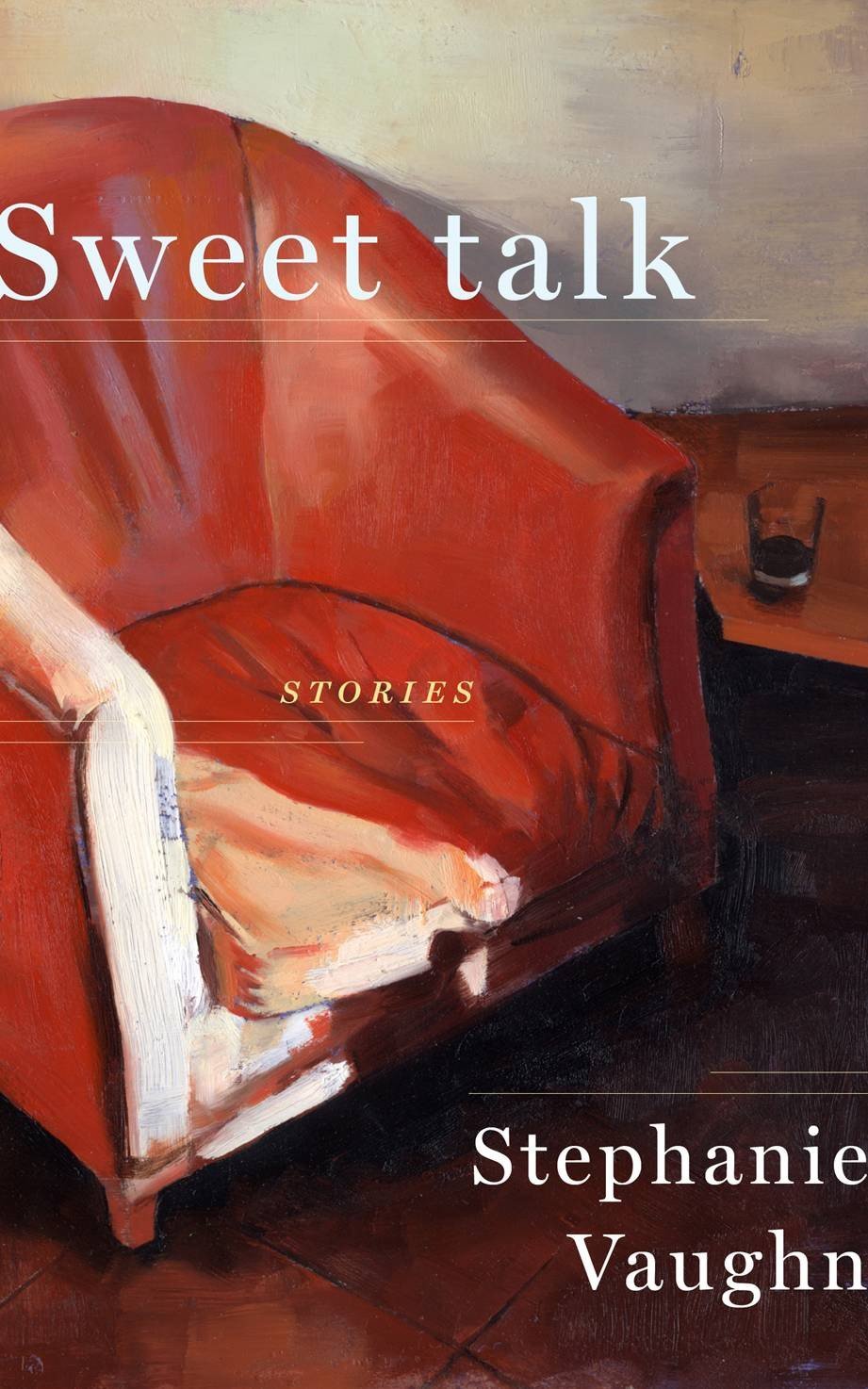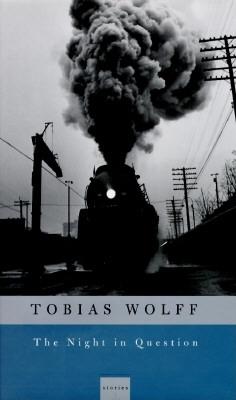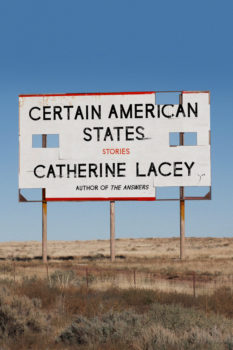In his 2007 Harper’s essay “The Ecstasy of Influence: A Plagiarism,” Jonathan Lethem tells the story of Muddy Waters recording a song, “Country Blues,” for the folklorist Alan Lomax in 1941.[1] After performing the song, Waters says:
I made it on about the eighth of October ’38. I was fixin’ a puncture on a car. I had been mistreated by a girl. I just felt blue, and the song fell into my mind and it come to me just like that and I started singing.
Lomax knew the song “Walkin’ Blues” by Robert Johnson and asked if other songs might use a similar melody. Waters replies:
There’s been some blues played like that. This song comes from the cotton field and a boy once put a record out—Robert Johnson. He put it out as named “Walkin’ Blues.” I heard the tune before I heard it on the record. I learned it from Son House.
Lethem says that “in nearly one breath” the blues singer offers several versions of the song’s origins: “’active authorship’: he ‘made it’ on a specific date… the ‘passive’ explanation’: ‘it come to me just like that.'” Faced with Lomax’s “question of influence,” Waters, “without shame, misgivings, or trepidation,” says that he heard the Johnson version, but that he learned it from his teacher, Son House. Then, “in the middle of that complex genealogy,” he asserts “this song comes from the cotton field.”
Blues and jazz musicians have, according to Lethem, “been enabled by a kind of ‘open source’ culture, in which pre-existing melodic fragments and larger musical frameworks are freely reworked.” Likewise, the same “creative common” can be seen in the fine, visual, decorative, and applied arts. “Appropriation, mimicry, quotation, allusion, and sublimated collaboration,” says Lethem, “consist of a kind of sine qua non of the creative act, cutting across all forms and genres in the realm of cultural production.” Yet, in the literary arts we operate under the illusion that an author is the sole originator of his or her poetry, fiction, or nonfiction. “Words belong to the person who wrote them,” Malcom Gladwell writes in his 1984 New Yorker essay “The Picture Problem,” “and, in the worlds of academia and publishing, plagiarism has gone from being bad literary manners to something much closer to a crime.”
That said, plagiarism isn’t always a crime or a moral failure. In fact, it can be an act of admiration, an effort to don a literary style, or more simply a necessary step in learning how to write. It’s a transitional strategy, a learning strategy that has its counterpart in literary writing under the guise of “finding and trying out new voices in which to speak,” and it’s demonstrated in the short novel Old School by Tobias Wolff.
Lethem, in “The Ecstasy of Influence,” points out a truth that most writers know: writers “are brought to their vocation when their own nascent gifts are awakened by the work of a master.” The discovery of one’s voice “isn’t just an emptying and purifying oneself of the words of others but an adopting and embracing of filiations, communities, and discourses.” So it is that the narrator of Old School is awakened by his own master, Ernest Hemingway, and he’s aware of the long literary history of writers welcoming other writers:
I knew that Maupassant, whose stories I loved, had been taken up when young by Flaubert and Turgenev; Faulkner by Sherwood Anderson; Hemingway by Fitzgerald and Pound and Gertrude Stein… It seemed to follow that you needed such a welcome, yet before this could happen you somehow, anyhow, had to meet the writer who was to welcome you.
Meeting a writer and gaining his or her welcome is the plot of the novel Old School, which takes place at a prestigious boarding school in 1960. That year the school hosts three visiting writers—Robert Frost, Ayn Rand, and Ernest Hemingway—and conducts three literary competitions where the winner earns a private meeting with the visiting writer.
The narrator, like all the other “scribblers” in his school, works for that welcome by learning his craft through imitation, saying:
I myself was in debt to Hemingway—up to my ears… [I] even talked like Hemingway characters, though in travesty… Today is the day of meatloaf. The meatloaf is swell. It is swell but when it is gone the not-having meatloaf will be tragic and the meatloaf man will not come anymore.
All of the boys owe their own master yet they would never accuse another boy of imitation because “once crystallized, consciousness of influence would have doomed the collective and necessary fantasy that our work was purely our own.”
The narrator of Old School becomes so eager to join the ranks of writer that he actively engages in what Rebecca Moore Howard in her article “Plagiarisms, Authorships, and the Academic Death Penalty” identifies in the composition classroom as “patchwriting”[2]—deleting a few words, altering sentence structure, and using one-for-one synonym substitutes. Still other times, he flat out copies the stories of Hemingway. “I used my typewriter because Hemingway famously did,” he says, “but I slowed myself to hunt-and-peck speed so I could feel the sentences take form, sense the shift in focus or tone when I struck the carriage return for a new paragraph; a thoughtful pause as I read over the page I’d just finished and slowly rolled a fresh one into the platen, then the final period smacking home and all the joy of completion, the joy of Hemingway himself.” Like an apprentice painter copying the work of a master artist, the narrator learns through imitation and even comments:
None of this seemed ridiculous to me. A friend’s parents… had learned complicated dances by following footprints on diagrams they rolled out on the floor. I’d seen them do the mambo very impressively… and they sure as hell weren’t using their scrolls… They were just doing what came naturally, from instincts they had trained with certain devotions, and the result was invention, freedom—mambo!
For a writer, artistic invention and freedom does not materialize out of thin air. It’s an instinct honed by its own less-than-fancy scrollwork—reading and imitation.
Yet, culturally we operate by and large under the eighteenth-century ideal of the author as solitary genius, a sole creator of original work. Artistically, though, that definition doesn’t hold water when you consider the pastiche-like quality of our craft. Susan D. Blum, in My Word! Plagiarism and College Culture, discovers that young writers find “self-expression—uniqueness—in pastiche” and are beguiled by the “ecstasy of influence.” Partly, this is attributable to the phenomenon of the “performance self.” Unlike the authentic self, grounded in being singular, unique, and unyielding no matter the circumstance, the performance self is more than willing to compromise and fundamentally concerned with “achieving set goals,” “observer’s reactions,” “outward behavior,” “the judgments of others,” and whether or not he or she is “appreciated.”
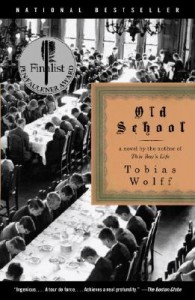 Without question, the narrator of Old School—a scholarship boy at an elite eastern prep school—feels the need to perform. Though the school takes pride in rewarding boys based on “character and deeds,” there’s an unspoken ethos of wealth and privilege that marks the boys “like tribal tattoos” and undercuts the school’s “egalitarian vision of itself.” Anxious not to be marked an outsider by his classmates, the narrator does not reveal that he’s on scholarship and makes himself “the picture of careless gentility” and attempts to “wipe out any trace of the public school virtues” that he “used to cultivate,” even going so far as to gloss over his Jewish ancestry. He becomes so absorbed into his performance “that nothing else came naturally.” Even the stories that he writes for the school literary journal, Troubadour, are, as he says, “designed to make me appear as I was not.” Only toward the end of the novel does he grow tired and embarrassed of the act, and realizes he’s “a stranger even to those [he] called [his] friends.”
Without question, the narrator of Old School—a scholarship boy at an elite eastern prep school—feels the need to perform. Though the school takes pride in rewarding boys based on “character and deeds,” there’s an unspoken ethos of wealth and privilege that marks the boys “like tribal tattoos” and undercuts the school’s “egalitarian vision of itself.” Anxious not to be marked an outsider by his classmates, the narrator does not reveal that he’s on scholarship and makes himself “the picture of careless gentility” and attempts to “wipe out any trace of the public school virtues” that he “used to cultivate,” even going so far as to gloss over his Jewish ancestry. He becomes so absorbed into his performance “that nothing else came naturally.” Even the stories that he writes for the school literary journal, Troubadour, are, as he says, “designed to make me appear as I was not.” Only toward the end of the novel does he grow tired and embarrassed of the act, and realizes he’s “a stranger even to those [he] called [his] friends.”
The narrator craves an end to his performance, an opportunity to discover the true nature of himself. He yearns for an authentic self as the deadline nears to turn in a story to win an audience with Hemingway. Unable to read any of his old stories, which he now views as “props in an act,” he’s “frozen” and unsure of “how else to write—how to go about making something that was true.” Until late one night in the offices of Troubadour, he picks up a five-year old issue of an all-girls school’s literary journal and reads “Summer Dance” by Susan Friedman. The story is about a boarding school girl on scholarship who is home for the summer and trying hard to fit into the gentile world of summer dances at country clubs. Immediately, the narrator feels that his “inmost vault [has] been smashed open and looted and every hidden thing spread out across [the] pages.” “The whole thing,” he says, “came straight from the truthful diary I’d never kept.”
Already accustomed to typing out Hemingway stories, he thinks, “What the hell—let’s see how it felt to write it.” In typing the first sentence, something odd happens to the narrator: “in writing those words I felt…an intuition of gracious release,” a stripping away of “pretense” and “the fear of giving myself away.” He says, “In that one sentence I gave myself away beyond all recall.”
What’s happening is that the narrator, by now used to performing, is finding an authentic self in yet another performance identity—Susan Friedman. For the performance self, Blum says, “identity has to do with selection and consumption rather than with creation, with sampling rather than with composing.” In other words, identity can be a form of patchwork and the narrator—at the time—doesn’t see what he’s doing as cheating, a mistake, or stealing. He sees his act of plagiarism as a “gesture of reverence,” a strategy to try on a new voice and, in the end, discover his own. The narrator even comments that his classmates will recognize his authentic self in the largely copied story: “Anyone who read this story would know who I was.”
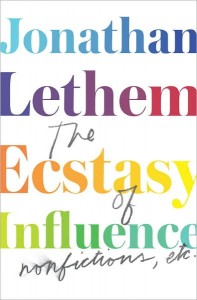 I’ll go so far as to argue that what the narrator is doing with “Summer Dance” isn’t wholly derivative, it’s borrowing and it’s transformational. The narrator engages in patchwriting. He changes the story’s setting, brings “other particulars into line,” and changes the character’s first name to his own “to place [him]self unmistakably in the frame of [the] acts and designs” but keeps the last name, Levine, to make “unmistakable what [his] own last name did not.” Gladwell, in “The Picture Problem,” writes that “borrowing crosses the line when it is used for a derivative work. It’s one thing if you’re writing a history of the Kennedys… and borrow, without attribution, from another history of the Kennedys.” Writing about something new and using someone else’s descriptions or their story as an outline or a building block, though, is “the way creativity is supposed to work…old words in the service of a new idea aren’t the problem.”
I’ll go so far as to argue that what the narrator is doing with “Summer Dance” isn’t wholly derivative, it’s borrowing and it’s transformational. The narrator engages in patchwriting. He changes the story’s setting, brings “other particulars into line,” and changes the character’s first name to his own “to place [him]self unmistakably in the frame of [the] acts and designs” but keeps the last name, Levine, to make “unmistakable what [his] own last name did not.” Gladwell, in “The Picture Problem,” writes that “borrowing crosses the line when it is used for a derivative work. It’s one thing if you’re writing a history of the Kennedys… and borrow, without attribution, from another history of the Kennedys.” Writing about something new and using someone else’s descriptions or their story as an outline or a building block, though, is “the way creativity is supposed to work…old words in the service of a new idea aren’t the problem.”
Let me return briefly to the music analogy. Listen carefully to any pop song and you’re liable to find something in its composition directly or indirectly influenced by another song or style of music. Without the blues, for example, we would never have had the Rolling Stones or Led Zeppelin. Put on a recording of “More Than a Feeling” by Boston, and then listen to “Smells Like Teen Spirit” by Nirvana. You’ll immediately recognize that both share the same guitar lick—one played melodically and the other with urgency. Gladwell says that we know “enough about music to know that these patterns of influence—cribbing, tweaking, transforming—[are] at the very heart of the creative process.” Without influence, music wouldn’t be able to evolve. A successful music executive “has to understand the distinction between borrowing that is transformative and borrowing that is derivative.”
A successful publisher or faculty member (in the world of the novel), however, can’t make that distinction because the narrator has committed an act of plagiarism. According to Blum, academia clings to the notion of a “unique, isolated, authentic self” and ignores the truth of the matter: all texts—consciously or unconsciously—are “woven entirely with citations, references, echoes, [and] cultural languages” that are “anonymous, untraceable, and yet already read.” If the majority of texts are plagiarized, then isn’t it natural that young writers would want to try on “different personae”?
When confronted with proof of his plagiarism, the narrator is confused:
The line below the title said by Susan Friedman. The name threw me. I’d completely forgotten it. It had flown my mind as soon as I’d begun reading the story… and seen my life laid bare on the page, and in all the time since then I’d never thought of “Summer Dance” as anyone’s story but mine… I couldn’t reconcile what I knew to be true with what I felt to be true.
In fact, it’ll take many more years before the narrator recognizes that it isn’t his story. Kicked out of his school for violating the Honor Code, he ends up in New York City working as a waiter for several years and then a picture framer, a Brinks guard, a plumber’s assistant, and a journalist. He drinks too much, moves around the city, cheats on his one girlfriend, takes and drops out of extension classes at the New School, and eventually joins the Army and ends up in Vietnam. Of his itinerant life, he says, “If this looks like a certain kind of author’s bio, that’s no accident. Even as I lived my life I was seeing it on the back of a book. And yet in all those years I actually wrote very little.” It isn’t until the narrator is much older (and a successful writer) that he’s able to drop the performance and offer an authentic biography of himself, recounting, “the author… learned to be alone in a room, learned to throw stuff out, learned to keep gnawing the same bone until it cracked. It would say that the author lived more like a banker… It would be very boring.” He comes to an understanding that there isn’t a particular moment where he can say that he learned to write truly and became a writer. All he can say is this:
The life that produces writing can’t be written about. It is a life carried on without the knowledge even of the writer, below the mind’s business and noise, in deep unlit shafts where phantom messengers struggle toward us, killing one another along the way; and when a few survivors break through to our attention they are received as blandly as waiters bringing more coffee.
Wolff is talking about the unconscious where art comes from, where the imagination is “stitched, quilted, pastiched.” Where Lethem says, “all ideas are secondhand, consciously and unconsciously drawn from a million outside sources, and… there is not a rag of originality about them anywhere except the little discoloration they get from [the writer’s] mental and moral caliber and his temperament, and which is revealed in characteristics of phrasing.” Only when the narrator fully understands the multitude of influence, the plethora of performances that give rise to an authentic self, can he look back at “Summer Dance” “no longer in any confusion as to whose story it was, whose talent Hemingway had blessed.” It takes him a lifetime of writing—many years of living—to understand the plurality of influence and to recognize that his cut-and-paste rendering of “Summer Dance” didn’t twist the strands of old and new enough to truly discolor his source material.
The twisting of “old and new” is really what influence boils down to. Like the novel’s narrator, we’ve all read a story early in our writing life and felt at the end, “I could have written that.” And each of us in our apprenticeship has turned to a favorite writer for inspiration or for instructive help when stumped by a scene or a problem of language (I’ve written here about my curative tonic for a case of the yips, Tim Johnston and Janet Peery). If we manage to transform the work of the master writer—“discolor” his or her influence with our own “mental and moral caliber”—then we’ve safely moved past the risk of being derivative, at best, and a plagiarist, at worst. If not, though, and we’re simply imitating our heroes as we teach ourselves to write, then it’s probably best not to show the story to anybody and to put it deep into a drawer, where the unconscious can do its work.
Footnotes:
[1] Admittedly, it’s a bit problematic attributing quotes from this essay to Jonathan Lethem. The essay itself—a defense of plagiarism—is comprised of quotations lifted wholesale from other writers and skillfully stitched together. The Muddy Waters story, for example, is taken from Siva Vaidhyanathan’s Copyrights and Copywrongs. That said this essay will attribute all quotes from “The Ecstasy of Influence” to Lethem for simplicity and in service of the larger point that all ideas are derived from patterns of influence and transformed by the creative process.
[2] Is this academically dishonest? Not always, according to Rebecca Moore Howard in “Plagiarisms, Authorships, and the Academic Death Penalty.” Howard suggests that “patchwriting” is a necessary part of student learning. A young writer admires a text and attempts to “employ the language” through imitation as a way of “expanding one’s lexical, stylistic, and conceptual repertoires.”
Further Links and Resources:
- Read Travis Holland’s 2009 interview with Tobias Wolff, in which the two discuss Old School and the important of influences, among other things.
- Check out Roohi Choudry’s 2011 interview with Jonathan Lethem, which begins with a conversation about the book project that “The Ecstasy of Influence” would become.
- Or read Shawn Andrew Mitchell’s 2010 interview with Ben Percy, who says of his early apprenticeship:
I became a careful carpenter studying blueprints, every word a 2×4, every punctuation a nail driven by a hammer. On occasion, if I truly admired a story, I would scribble out its design in a yellow legal tablet. Paragraph One: Character A introduced in job-related action that reveals personality; Setting at war with character and creates sinister mood; Theme hinted at in last sentence via weather and lighting. And on and on, blow-by-blow, like you said. And then I would try to borrow that skeleton and paste my own flesh upon it, creating an entirely different story with the same beats. That was a great learning experience.
Contributing Editor:
 Forrest Anderson‘s stories have appeared most recently in BULL: Men’s Fiction, Blackbird, The Louisville Review, and The South Carolina Review, and his essays have appeared in The Southeast Review and Pembroke Magazine. A graduate of the doctoral creative writing program at Florida State University, where he worked for two years as an archivist and assistant for Robert Olen Butler, he also holds a Master of Fine Arts from the University of South Carolina. Currently, he lives in Salisbury, NC and is an assistant professor of English at Catawba College.
Forrest Anderson‘s stories have appeared most recently in BULL: Men’s Fiction, Blackbird, The Louisville Review, and The South Carolina Review, and his essays have appeared in The Southeast Review and Pembroke Magazine. A graduate of the doctoral creative writing program at Florida State University, where he worked for two years as an archivist and assistant for Robert Olen Butler, he also holds a Master of Fine Arts from the University of South Carolina. Currently, he lives in Salisbury, NC and is an assistant professor of English at Catawba College.


